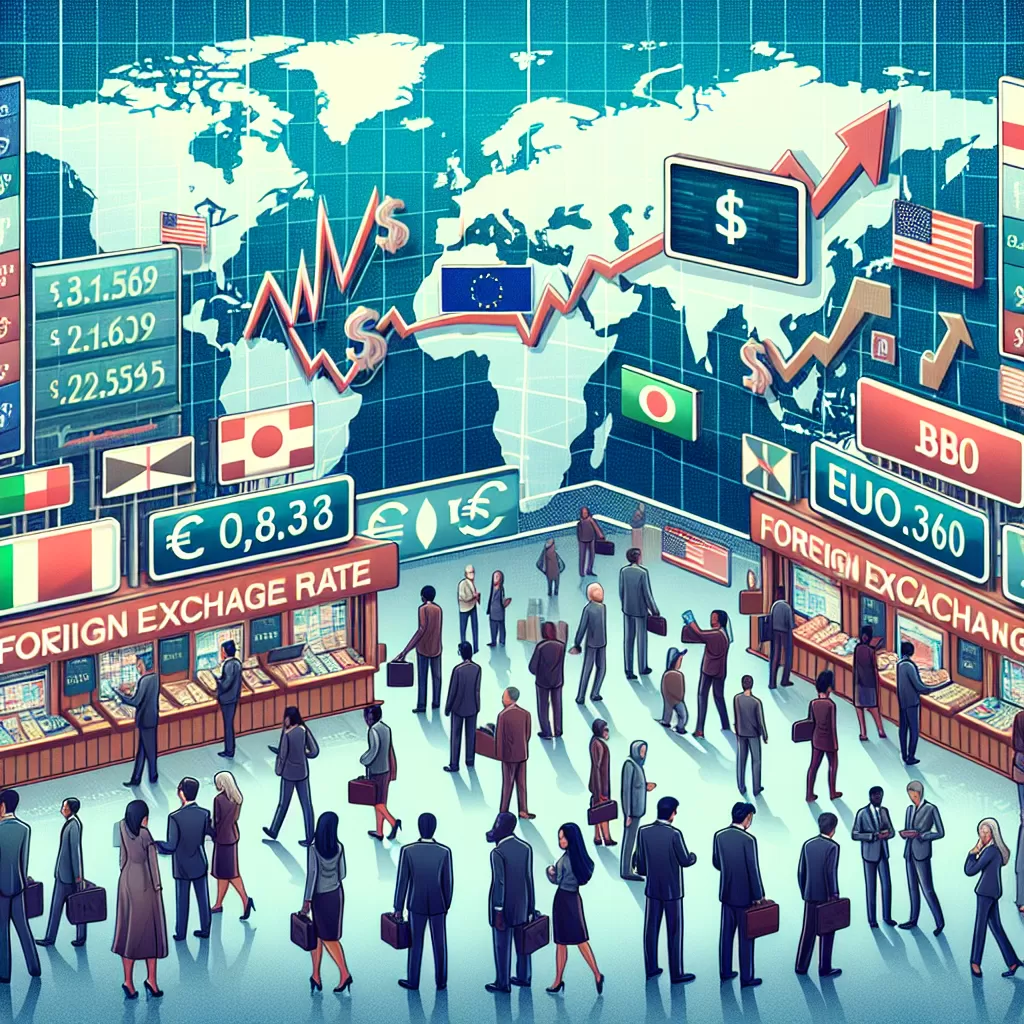What Is Foreign Exchange Rate
Follow Currency Mart April 10, 2024
Where to purchase Foreign Currencies?

Introduction to the Foreign Exchange Rate
The foreign exchange rate, simply referred to as forex rate, is the rate at which one currency can be exchanged for another. It's essentially a measure of one currency's value compared to another, being the price paid to buy a specific quantity of one currency using another. Forex rates typically involve a pair of currencies, like the Canadian dollar to the U.S dollar rate (CAD/USD) or the Euro to British pound rate (EUR/GBP).The Basic Principles of Forex Rates
Forex rates are largely based on supply-demand dynamics in global financial markets. When the demand for a particular currency increases or the supply decreases, its value tends to rise. Conversely, when the demand decreases or supply increases, its value tends to fall. Various economic and geopolitical events can alter these dynamics, affecting forex rates accordingly.The Role of Central Banks
Central banks play a pivotal role in determining forex rates. They can adjust interest rates, buy/sell domestic currency in the forex market, or impose exchange controls. Such actions can alter the supply-demand dynamics, thus influencing forex rates. Importantly, central banks often work to maintain exchange rate stability and avoid excessive fluctuations to safeguard their economies.Forex Rate Types: Fixed versus Floating
Forex rates can be broadly categorized into 'fixed exchange rates' and 'floating exchange rates'. Fixed exchange rates, as the name suggests, are set and maintained by the government or central bank, and stay constant from day to day. Floating exchange rates are determined by the forex market based on supply-demand dynamics, so they fluctuate continually.Spot versus Forward Forex Rates
Forex rates can also be differentiated into 'spot exchange rates' and 'forward exchange rates'. Spot exchange rates are the current rates in the forex market that apply to immediate currency exchanges. On the other hand, forward exchange rates are contracted today but apply to currency exchanges that will occur at a future date.Interpreting Forex Rates
Interpreting and understanding forex rates is crucial for traders, businesses, travelers among others. The first currency in a pair is the base currency, while the second is the quote currency. The forex rate tells you how much of the quote currency is needed to buy one unit of the base currency.Role of Forex Rates in Global Trade
Forex rates are crucial in facilitating global trade. They make it possible to conduct commerce across borders by enabling companies to convert one currency into another. For instance, if a Canadian company wants to import goods from the U.S., it needs to exchange its Canadian dollars for U.S dollars.The Effects of Forex Rates on Economy
Forex rates can have significant impacts on an economy. When a country's currency is strong, its goods and services become more expensive for foreign buyers, potentially hurting exports. Conversely, when a currency is weak, imports become more expensive, which could fuel inflation.Forex Rates and the Financial Market
Forex rates are highly significant for the financial markets. Movements in these rates can either increase or decrease the value of investments, depending on the currency denomination. Speculators also trade forex to profit from changes in forex rates.Conclusion
Overall, forex rates play a crucial role in the global economy, influencing trade, investment decisions, and monetary policy. By understanding what they are and how they work, you can make more informed decisions whether you're a business owner, investor, or traveler.
Where to purchase Foreign Currencies?